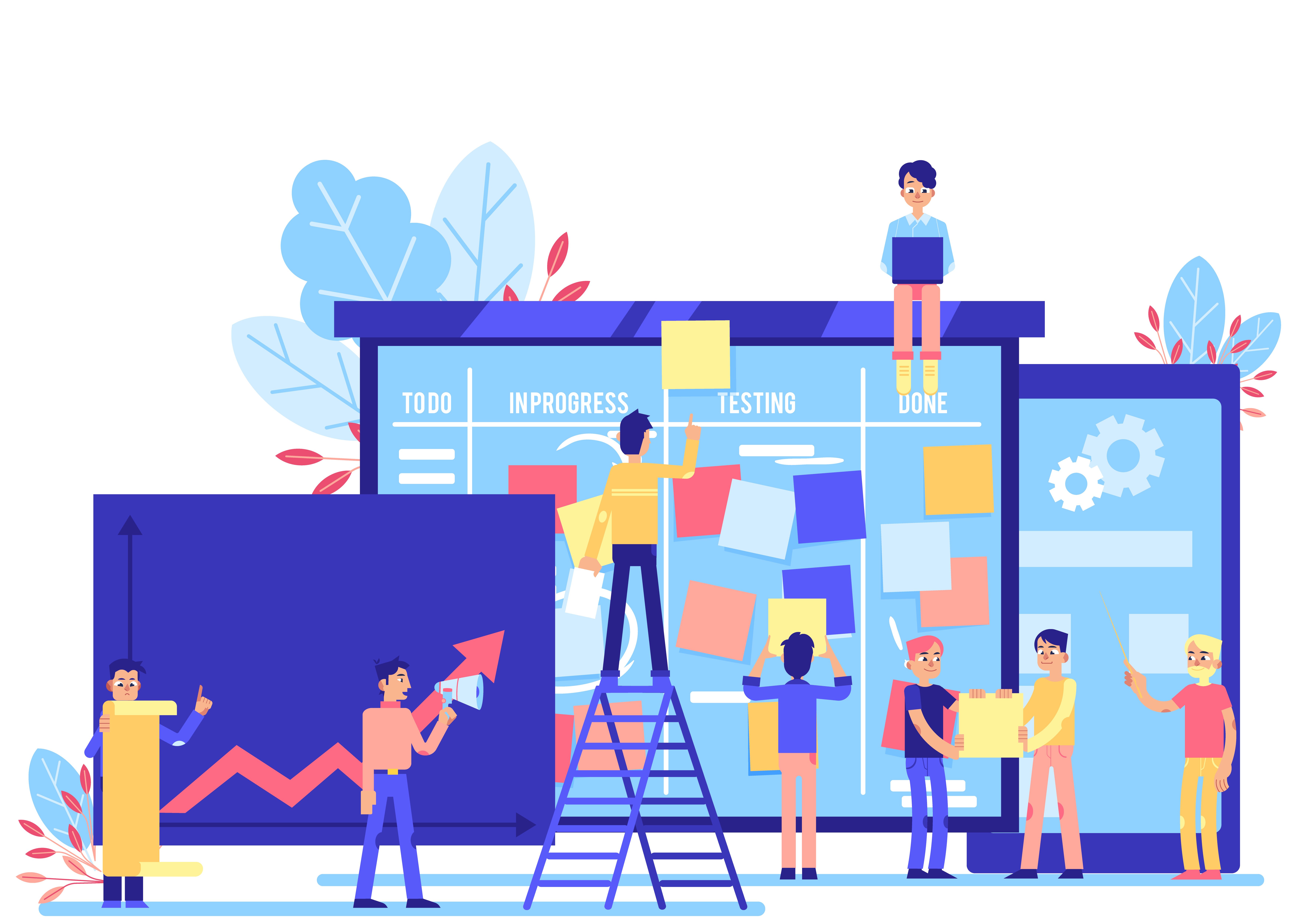New Year sale - up to 30% off training courses – use code: EARLYJAN26SA
23 March 2021 | Updated on 6 January 2022
What is Scrum training?
If your company is shifting towards a more agile way of working you may have heard the term ‘scrum’ bandied about. But what is the scrum framework? How does it link to agile practices? And what traini...

If your company is shifting towards a more agile way of working you may have heard the term ‘scrum’ bandied about. But what is the scrum framework? How does it link to agile practices? And what training is available to support you when mastering scrum? Read on to find out.
What is scrum?
As we’ve mentioned, scrum is commonly used within agile project management practice. It is essentially a framework for getting work done. It particularly benefits large or complex projects, but can aid smaller projects too. A variety of teams and departments utilise scrum practices – from marketing staff to HR departments, designers and software developers, through to engineering teams.
Scrum breaks work down into bite size pieces known as sprints in order to make it more manageable. Working in sprints opens projects up to change and adapt with ease. Sprints offer flexibility and ensure a project naturally adapts and evolves throughout its lifespan. In this way, the scrum framework allows project teams to continually improve and deliver value to customers and clients.
The benefits of scrum
The scrum framework outlines that within each sprint is a cycle of practices. Sprint cycles can vary, but generally they last around two weeks and contain four main events:
- Sprint planning: self-explanatory; this event lays out the tasks you’re shooting to complete during this sprint.
- Daily scrums or stand-ups: these are micro-meetings which occur daily and give teams a chance to raise any issues from the day before and outline the day ahead.
- Sprint review: essentially an internal show-and-tell of completed work towards the end of the sprint, sometimes including a product demo.
- Sprint retrospective: an opportunity to document and reflect on the sprint, define what has worked and set out any areas which could be improved going forward.
Part of working in sprints means teams hit milestones (sprint milestones) regularly. This can go a long way to keeping teams on track, focussed, engaged, and motivated. What’s more, short iterations continually give workers a sense of achievement and satisfaction.
Sprints bring teams together and see employees working collaboratively. Scrum practices open up communication, allowing workers to unite and overcome problems effectively as a team.
The scrum framework presents frequent deliverables, allowing clients to see value quicker, and provides teams with customer feedback much faster. Short iterations make it possible to reduce risk and cost as there is ample opportunity for adaptations. A framework like scrum can help your company to start thinking in a more agile way and practice building agile principles into your communication and work.
What is scrum training and how can it benefit me?
At ILX we provide accredited Scrum Master courses which will deepen your understanding of the scrum framework. The courses provide a solid foundation of scrum and its core principles, before moving onto best practices for applying it. The ILX approach to scrum training utilises group discussions, combined with practical training to help build knowledge of scrum.
The scrum master course is available in e-learning and virtual classroom formats, allowing candidates to choose a learning style which suits them. Whichever course format you choose, this professional development training builds sufficient knowledge of scrum to help teams and organisations adopt and fully embrace the scrum framework. From improving understanding of agile principles through to learning process steps and roles.
The scrum master courses are perfectly suited to those about to embark on a scrum master role, but are also ideal for any employees who are newly using agile practices and the scrum framework within their organisation. Discover more about our scrum master courses, demo or book here. Or get in touch with our knowledgeable team to discuss your company’s individual training course needs.